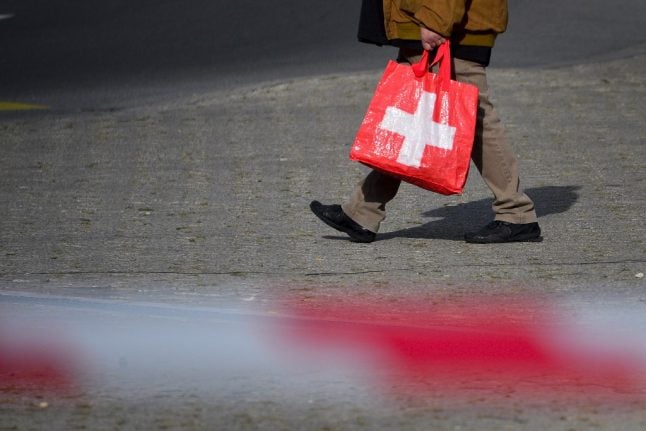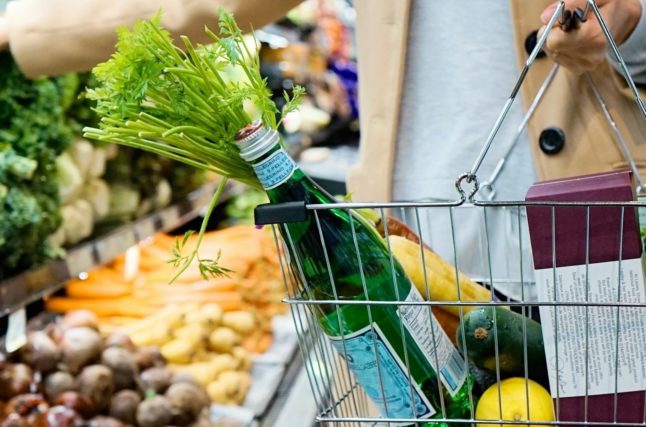The cantons currently on Germany’s quarantine list are Geneva, Vaud, Fribourg, Jura, Neuchâtel, Nidwalden, Schwyz, Uri, Zurich and Zug.
These regions have been added to the list because reported infection rates there are higher than Germany's threshold of 50 new cases per 100,000 residents in seven days. This means that anyone from one of these cantons must be tested on arrival in Germany.
READ MORE: Eight further Swiss cantons added to Germany's 'high risk' list
Given the restrictions in place, as well as fears that the border between the two countries may close, “many Swiss are going shopping in Germany, causing long queues at parking lots and supermarket checkouts”, 20 Minutes news portal reported.
Tram line number 8, which connects Basel to Weil am Rhein in Germany, was also saturated over the weekend, the newspaper reported.
A photo taken in the tram by a local news channel TeleBasel, shows a man from Switzerland who bought at least 100 rolls of toilet paper in neighbouring Germany.

Photo by TeleBasel
However, there is no need for panic-buying in Germany, local officials say.
Authorities in Baden-Württemberg, the region which borders Switzerland, said that residents of Appenzell, Aargau, Basel, Basel-Country, Jura, Schaffhausen, Solothurn, St. Gallen, Thurgau and Zurich can come to Germany without being tested, as long as they stay no longer than 24 hours — more than enough time to shop.
Making a quick dash to Germany, France or Italy to do some shopping is common practice for many people living in Switzerland’s border regions.
READ ALSO: Hamsterkauf – toiler paper disappears from German supermarket shelves as panic buying returns
That’s because most things are cheaper across the border: a study conducted in 2019 shows that Switzerland’s residents pay 168 francs (156 euros) for a basket of consumer goods costing on average 107 euros in Germany, 109 euros in France, and 98 euros in Italy.
But Switzerland is not the most expensive country in Europe — Iceland and Norway are even costlier, the study found.



 Please whitelist us to continue reading.
Please whitelist us to continue reading.
Stupid article about stupid people.